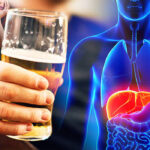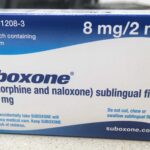Drug addiction is a serious national problem in the United States with 19.7 million Americans aged 12 and older dealing with a substance use disorder. Addiction happens everywhere—across all states and all ethnic and social groups.
If you have a loved one or family member struggling with substance abuse, call the Rehab Helpline for Drugs & Alcohol for immediate assistance.
People struggling with substance abuse didn’t intend for this to happen. Whether a person develops an addiction depends on genetic, environmental, and social factors. Often the drug use starts small and seems harmless—maybe a few drinks with friends, a random chance to try a new drug, or a prescribed medication to manage pain following an injury. At some point, however, the person begins to rely on the substance and seek it out no matter the consequences.
Drug use impacts family and friends, both emotionally and financially. It’s hard to see someone you care about living with this serious illness, and it can make you feel hopeless. The person with the addiction may have trouble recognizing the signs of their substance abuse.
Fortunately, you’re not alone, and treatment does help. Understanding the signs of drug addiction is a first step that can get the person on the path to recovery.
It’s essential to identify substance abuse as early as possible so the person can start getting help. Drug abuse impacts their thinking, decision making, behaviors, and emotions. Eight common signs of drug addiction include:
- Inability to stop using the substance, even if you want to quit
- Continuing to take a drug for a health problem, after it’s no longer necessary
- Needing increasing amounts of the substance to get the same effects
- Trouble completing normal daily tasks either at home, work, or school
- Increased feelings of depression or lack of motivation
- Increased aggression or irritability
- Change in physical appearance
- Involvement in criminal activity
8 Warning Signs of Drug Addiction
Substance abuse impacts a person emotionally, behaviorally, and physically. The person will continue to use the substance despite significant consequences.
Identifying when there is an addiction is essential. The longer the person remains addicted to drugs, the harder it is for them to stop. Recognizing the signs of drug addiction as early as possible is helpful to the treatment process.
Here are some common signs of substance abuse to look for if you’re concerned you or someone you love may have an addiction.
1. Inability to stop using the substance, even if you want to quit
One strong indicator that you or someone you love has a drug addiction is being unable to stop using despite wanting to quit. The person continues using despite harmful consequences to them or their family. They may spend increasing amounts of time thinking of the drug: how to get it, when you can next use, or how you feel when you use it or don’t use it.
It is hard to stop because substance abuse causes changes in the brain’s functioning. Drugs can alter brain regions critical to decision making, judgment, behavior control, and cravings. Our brain is designed to increase the chance that an enjoyable activity is repeated. Initially, the person enjoyed using the drug, so they continued to use more.
2. Continuing to take a drug for a health problem even after it’s no longer necessary
Prescription medication abuse is a problem in the United States, with approximately 18 million Americans misusing them at least once in 2017.
Prescription drug abuse involves using that medication in a way that isn’t intended by the prescribing doctor. This includes taking pills after the health problem is resolved, using someone else’s prescription, or obtaining the medication illegally. While pain medications like opioids are often associated with prescription drug abuse, other medications such as sedatives, anti-anxiety medications, and stimulants are commonly abused.
People with past or current substance abuse or addictions are at increased risk of prescription drug abuse and should ask their doctor about all options before being prescribed a potentially addictive medication.
3. Needing an increasing amount of the substance to get the same effects
With continued use over time, people need larger amounts of the drug to feel the desired effects. Drug tolerance is a physical effect of repeatedly using a substance and does not indicate an addiction on its own. You can be taking a non-addictive medication and develop a tolerance to it. The medication at that point doesn’t give you the same benefits as the same dosage did before.
However, for individuals addicted to a drug, they will continue to seek more to achieve the effects. This behavior can lead to more negative health effects or poor choices, such as spending even more money to obtain larger amounts.
4. Trouble completing normal daily tasks either at home, work, or school
As the addiction grows, their drug use can become the main focus of their daily life to the exclusion of other activities. People who are usually reliable start missing deadlines at work or school. They start underperforming, and the quality of their work may decline. Some people may begin neglecting chores at home such as laundry, cleaning, or cooking. If it goes on too long, they may lose their job, go into debt, lose scholarships, or fail to pass in school.
Addiction can be hard on families, especially if it’s unacknowledged. Others in the family often must try and keep up with the neglected chores. Children may not receive the attention they need by the loved one, which can be confusing and stressful.
5. Increased feelings of depression or lack of motivation
Addiction takes an emotional toll. Some individuals lose interest in the activities they usually enjoyed, which can further isolate them from friends and family. As they stop doing activities they enjoy, their risk of clinical depression increases.
Depression is common among people with addiction or substance abuse. While everyone feels sad or down at times, clinical depression doesn’t go away. Some people with depression turn to drugs or alcohol to try and feel better, which can lead them on the path to addiction. For others, their ongoing substance use causes their depression.
6. Increased aggression or irritability
Drug addiction can cause sudden changes in a person’s emotions. They may become more aggressive, unpredictable, or irritable and may lash out at those around them—verbally or physically. These changes can be due to the effect of the substances on the person’s brain or may occur when they are under the influence of the drug.
Some types of substances may be more likely to cause aggression or anger, such as alcohol, cocaine, or methamphetamine. These substances can lower a person’s inhibitions and impair their judgment and perception of situations.
7. Change in physical appearance
One common consequence of addiction is a decline in personal hygiene. They may not bother to shower regularly, clean laundry, or buy food.
The substances can cause physical changes. Some people with addiction will suddenly lose weight. Their eyes may be bloodshot or glazed. Substances can cause changes to their skin, nails, or teeth, beyond neglect of basic hygiene. They may be more accident prone while high or drunk.
8. Involvement in criminal activity
Addiction can lead to people taking risks or doing dangerous activities that they usually wouldn’t do. For instance, people may drive while impaired, go to dangerous places to get drugs or take risks like playing with a gun.
Addicts will start stealing from friends, family, or strangers to pay for their drugs. Over time, they may even get in trouble with the law.
How To Get Help for an Addiction
An addiction can form before a person realizes it. Substance abuse can cause multiple problems for a person, including changes in their physical health, emotions, behaviors, and social supports. It can lead to trouble with the law, loss of jobs, and relationships.
Fortunately, substance addiction is treatable with help. By knowing the signs of addiction, you will be able to recognize a substance abuse problem early, so you or your loved one can get the treatment needed.
It’s essential to get help quickly if you or a loved one has a problem. The Rehab Helpline for Drugs and Alcohol can help, whether you have an addiction or your loved one does. They can help you learn about treatment options and answer your questions, so healing can begin.









